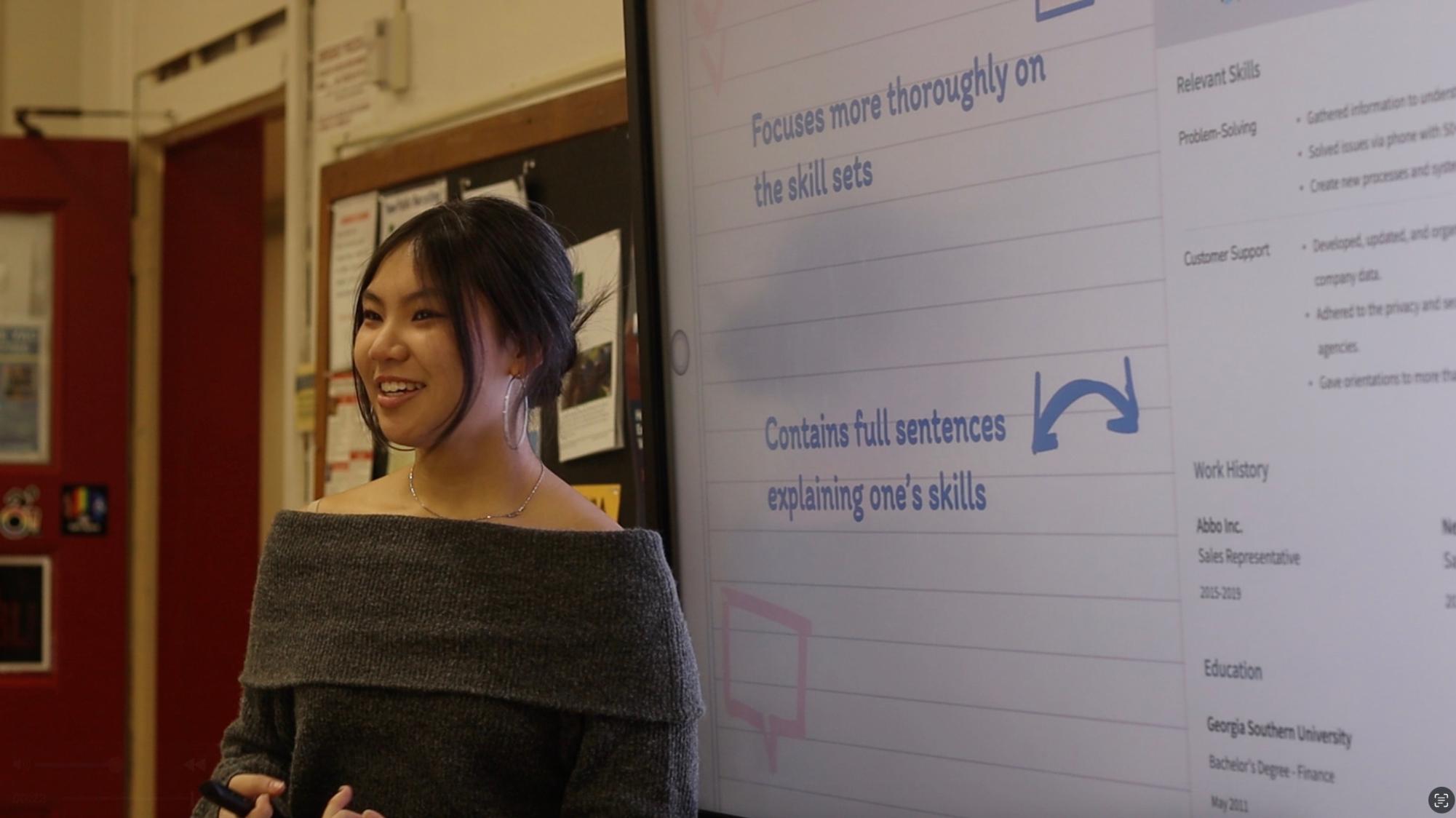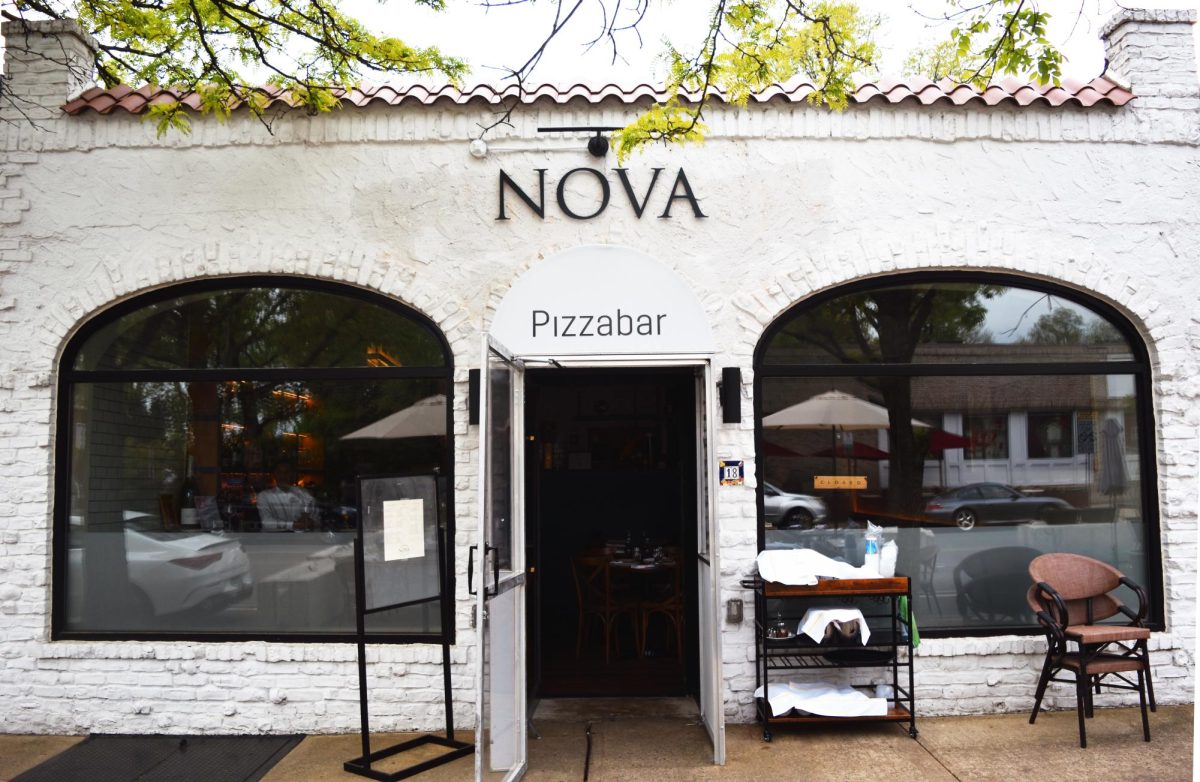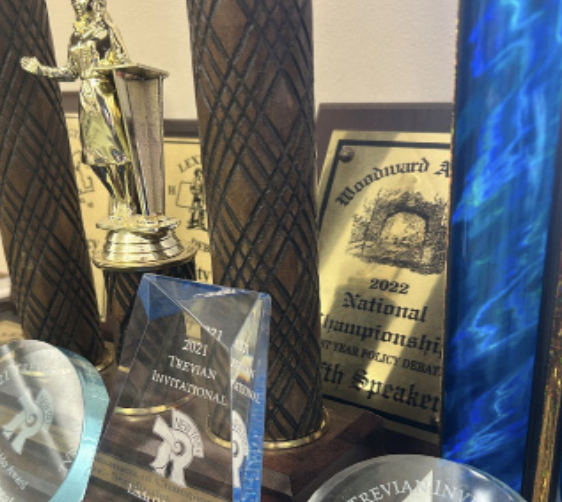Starting on February 5th, a new program at Mamaroneck High School will equip students with essential job and life skills, preparing them for the transition into adulthood. The lunchtime course will be held at the College Information Center CIC and will provide students with practical knowledge on topics such as resume writing and job applications.
The program is led and created by juniors Anna Chaice, Ava Chow, Margy Sheker, and Teagan Young, who are all part of the Original Civic Research and Action (OCRA) program. OCRA is a four year program that encourages students to recognize and address local issues in a meaningful way.
Chaice, Chow, Sheker and Young want to ensure all MHS students leave high school with necessary life skills. Joseph Liberti–founder of the OCRA program–defines these life skills as “skills that are necessary or desirable for full participation and success in everyday life,” including financial literacy, problem-solving, study skills, time management, public speaking, and job-related competencies such as the interview process.
Liberti goes on to emphasize the importance of direct instruction in life skills, noting that “certain skills may not easily fit within NY State standards, yet are crucial for students’ long-term success.” Liberti also points to a recent survey conducted by the group among freshmen and sophomores at MHS which highlights a demand for such instruction.
Young, Chow and Chaice decided to pursue working on this life skills class Sheker, presented a presentation on life skills, “piquing their [their] interest.” In the OCRA program as sophomores, everyone has the ability to choose an issue or project to present to the class as something they might want to focus on in the future, for the rest of their high school years.
Sheker comments how this idea for this came from “the collective realization that while school equips us with equations and essays, it often skips the essential tools for navigating life beyond graduation.” Through watching peers struggle with challenges related to stress and decision making, Sheker questions “why this isn’t a priority in education.”
The idea for the course originated with Sheker, who introduced a presentation on life skills in the OCRA program halfway through her sophomore year which “pique[d] the interest” of her three current partners. Reflecting on the project’s origins, Sheker explained, “While school equips us with equations and essays, it often skips the essential tools for navigating life beyond graduation.”
In order to reflect this question and its impact on education, Chaice highlights how each member “reflected individually on the skills [they] felt were lacking…and recognized that many students face the same challenges.” Once garnering an understanding of the common struggle, the group was able to “observe a gap in the essential life skills needed to transition smoothly from high school to college or the workforce.”
Therefore, over the summer, the group researched various aspects of life skills education, developing and refining lesson plans focused on job readiness. “We worked and reworked them over and over again to perfect them,” Chow noted. The team designed interactive materials, including worksheets and handouts, to foster an engaging learning environment.
The program’s first unit will focus on job skills, consisting of five lessons covering topics such as resume building and workplace conduct. “We want to start with something that can appeal to the majority of the student body as a way to bring about lifelong success while also benefiting them in the near future,” Young explains.
In developing their curriculum, the group sought input from professionals in the field. Their mentors include Jill Patricot, a financial literacy teacher at Ursuline, and Polly Lagana, an adjunct communications professor at Baruch College. These two individuals have been essential aspects of their project. Young states that their two mentors have “give[n] amazing feedback on [their] lesson plans and outreach strategies” throughout the process of creating the curriculum.
Additionally, Liberti explains that he has helped the students with “the basics of the unit and lesson design” and has shared “existing educational resources pertaining to life skills.”
While Liberti’s guidance remains key to the group success, Liberti explains that it is the “community mentors that have assisted [and continue to assist] with the finer details.”
The initiative has received strong support from the MHS community, including teachers and students. Chaice mentions that the group is also working to “align the course with the school’s senior internship program” in collaboration with the Coordinator of Student Events Kristin Barnard.
In the final days before the program’s launch, Sheker notes that “it’s been validating to see how many people recognize the need for this program and are eager to contribute.”
Looking ahead, the group plans to develop additional units on financial literacy, organizational skills, and more. Most courses will be held after school or during lunch periods, with further updates to be announced. As the program grows, its creators hope to build a sustainable model that will benefit MHS students for years to come.








